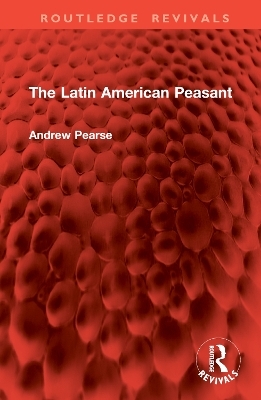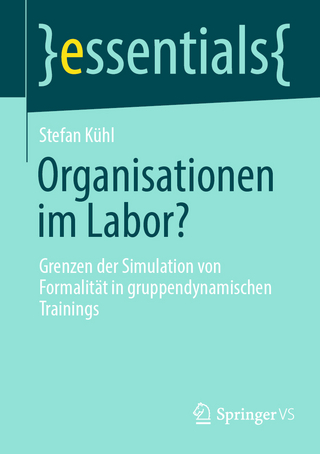
The Latin American Peasant
Seiten
2024
Routledge (Verlag)
978-1-032-86691-8 (ISBN)
Routledge (Verlag)
978-1-032-86691-8 (ISBN)
First Published 1975, The Latin American Peasant is not a historian’s book, the presentation is rather sociological. The concept peasant, taken as equivalent of the word campesino or campones, does have both historical and geographical reality in the Latin American context.
First Published 1975, The Latin American Peasant is not a historian’s book, the presentation is rather sociological in that it seeks to explain the working out of a process of social transformation and the social forces which are released by the pursuit of common interests by social entities such as classes and territorial groups, and the pursuit of a vision of livelihood by individuals and families.
The peasant, in the sense of this book, is the agricultural producer and cottage craftsman of preindustrial and partially industrial societies, who produces for the provisioning of his own household, and for market exchange, and lives in land groups. The concept peasant, taken as equivalent of the word campesino or campones, does have both historical and geographical reality in the Latin American context. The book discusses important themes such as land labor institutions in Latin America; peasant action; the transformation of the estate; peasants and revolution in Bolivia; and peasant organization and peasant destinies. This this is an important book for scholars and researchers of Latin American sociology, rural sociology, historical sociology, and sociology in general.
First Published 1975, The Latin American Peasant is not a historian’s book, the presentation is rather sociological in that it seeks to explain the working out of a process of social transformation and the social forces which are released by the pursuit of common interests by social entities such as classes and territorial groups, and the pursuit of a vision of livelihood by individuals and families.
The peasant, in the sense of this book, is the agricultural producer and cottage craftsman of preindustrial and partially industrial societies, who produces for the provisioning of his own household, and for market exchange, and lives in land groups. The concept peasant, taken as equivalent of the word campesino or campones, does have both historical and geographical reality in the Latin American context. The book discusses important themes such as land labor institutions in Latin America; peasant action; the transformation of the estate; peasants and revolution in Bolivia; and peasant organization and peasant destinies. This this is an important book for scholars and researchers of Latin American sociology, rural sociology, historical sociology, and sociology in general.
Andrew Pearse was a British sociologist who lived and worked in Latin America.
List of Tables and Figures Preface 1. Land Labor Institutions in Latin America 2. The Context of Peasant Action 3. The Transformation of the Estate 4. Peasants and Revolution in Bolivia 5. Peasant Organisation 6. Peasant Destinies 7. The Terms of Incorporation Bibliography Index
| Erscheinungsdatum | 22.08.2024 |
|---|---|
| Reihe/Serie | Routledge Revivals |
| Verlagsort | London |
| Sprache | englisch |
| Maße | 156 x 234 mm |
| Gewicht | 716 g |
| Themenwelt | Sozialwissenschaften ► Ethnologie |
| Sozialwissenschaften ► Soziologie ► Spezielle Soziologien | |
| ISBN-10 | 1-032-86691-8 / 1032866918 |
| ISBN-13 | 978-1-032-86691-8 / 9781032866918 |
| Zustand | Neuware |
| Haben Sie eine Frage zum Produkt? |
Mehr entdecken
aus dem Bereich
aus dem Bereich
eine Einführung
Buch | Softcover (2024)
De Gruyter Oldenbourg (Verlag)
29,95 €
Grenzen der Simulation von Formalität in gruppendynamischen Trainings
Buch | Softcover (2024)
Springer VS (Verlag)
14,99 €


